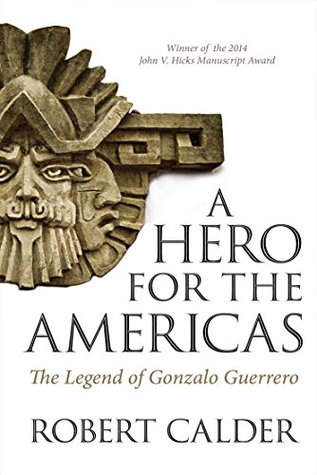Adventures in Bookland: A Hero for the Americas by Robert Calder

It’s not easy writing the biography of someone for whom virtually no historical evidence exists – I should know, because I’ve just done it with Warrior: A Life of War in Anglo-Saxon Britain. But at least with the warrior, we had a body. In trying to tell the life of Gonzalo Guerrero, Spanish conquistador turned Mayan guerilla, Calder doesn’t even have that: the body that, possibly, ends the story was never kept by the Spaniards who found it, a European in Mayan undress, killed by an arquebus ball. Indeed, the only direct testimony we have of Gonzalo’s life among the Maya was from a Spanish Franciscan, de Aguilar, who was himself captive for seven years. With de Aguilar’s escape, all direct testimony of Gonzalo ends: all that is left is legend and reconstruction. But while it is speculative, Calder does a very good job of constructing a plausible case for why a Spaniard might have decided to throw in his lot with the Mayans. The evidence that Gonzalo was the military and tactical genius directing their unexpectedly ferocious and skillful defence against the Spanish depends to a large degree, however, on the supposition that the Mayans could not have worked out their new tactics themselves. War is the great driver of innovation and I suspect the tactics of misdirection, subterfuge and ambush that the Mayans used against the Spanish on the Yucatan Peninsula were the results of their own reappraisal of what was necessary to try to stop the Spanish with their advantages in firepower. Calling on Gonzalo as the explanation does tend to smack of requiring a white man to explain why the natives were doing such a good job of stymying another lot of white men.
The book is very good on the wider context of the Spanish conquest of the Americas (although I could have done with a bit less of the post-modern obsession with competing narratives), and almost succeeds in bringing this most obscure of heroes to life.
0 Comments